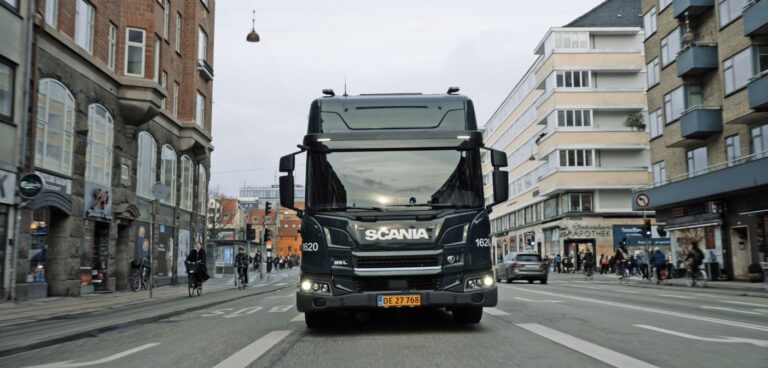Scania will supply at least 78 fully electric L-series trucks, with an additional 23 trucks as optional, to Amager Ressourcecenter (ARC) for urban waste handling in the Copenhagen region.
The fleet of electric trucks, which produce zero tailpipe emissions, are being deployed in the Danish capital as part of wider plans to improved air quality and reduced noise for residents.
Most of the low-entry L-series cabs also feature the Scania City Door, which is designed to improve the ergonomics and therefore working conditions for drivers. It also means the trucks are optimised for urban transport operations that include frequent stops.
“One of the reasons for choosing Scania was the “bus door” on the passenger side. It is designed as a glass revolving door with one large unbroken glass area at full height which opens inwards, and allows quick entry and exit and gives the driver a good overview,” explained Per Fischer, contract responsible, ARC.
The order includes at least 72 refuse collector trucks (with an additional 19 as optional), six box-body trucks (with an additional four as optional), as well as one hooklift truck (with a second as optional). The agreement also includes repair and maintenance contracts for eight to 10 years.
The first two fully electric L-series trucks were delivered in December 2021, and the rest of the fleet will be delivered throughout 2022 and into the first half of 2023.
“It was important for us, that the trucks have a high level of safety and new innovative safety solutions. Scania also offered comprehensive training and education including standby service in combination with a strong service network which ensures high uptime,” said Jacob Hartvig Simonsen, managing sirector, ARC.
Decarbonising waste management and recycling is an important part of Copenhagen’s goal to become the world’s first carbon-neutral capital city by 2025.
ARC’s Amager Bakke waste energy plant, with its rooftop ski slope and recreation area, was designed to be a symbol of the city’s sustainable ambitions and ARC aims for it to become the world’s first carbon-neutral waste energy plant.





